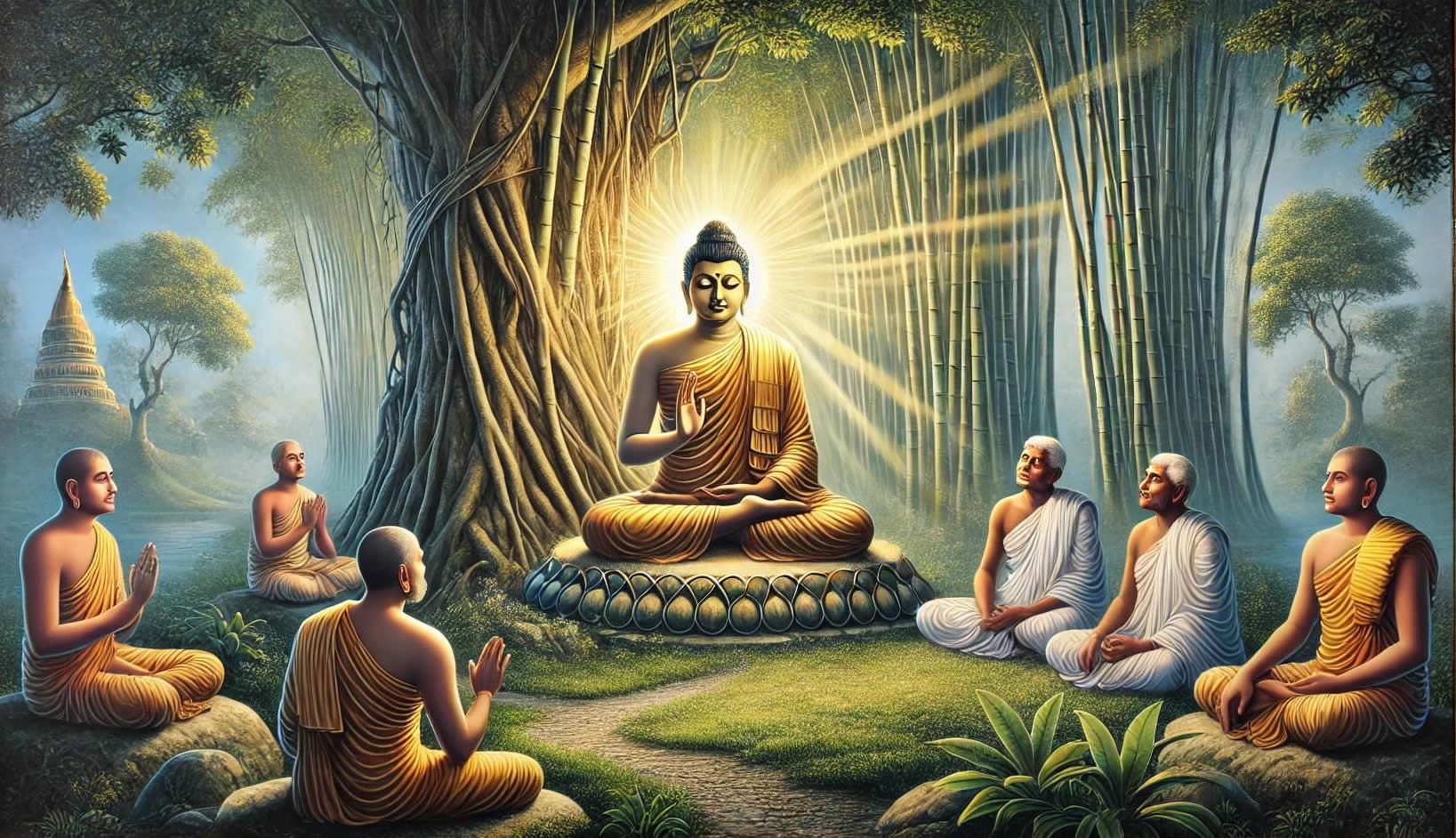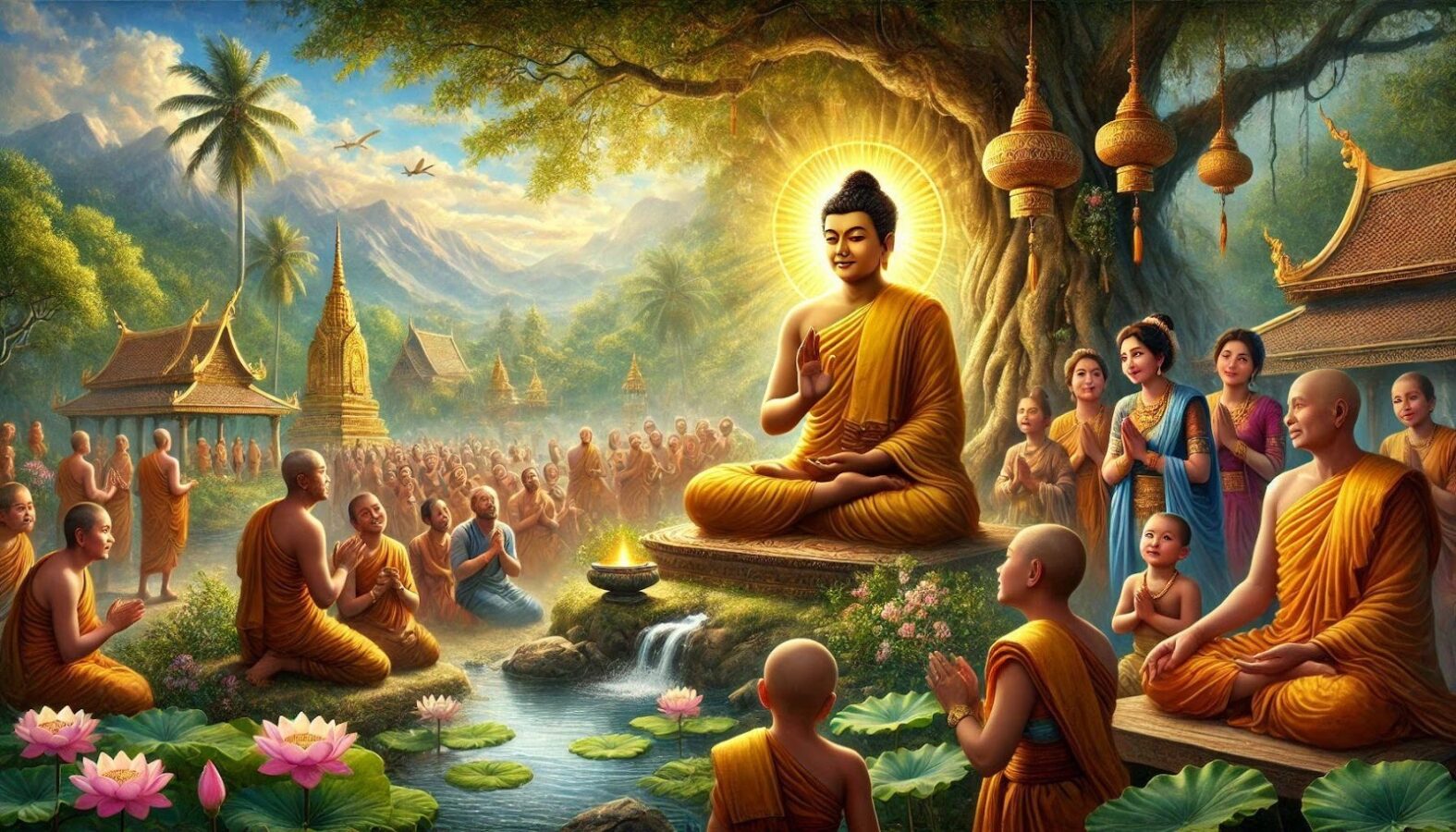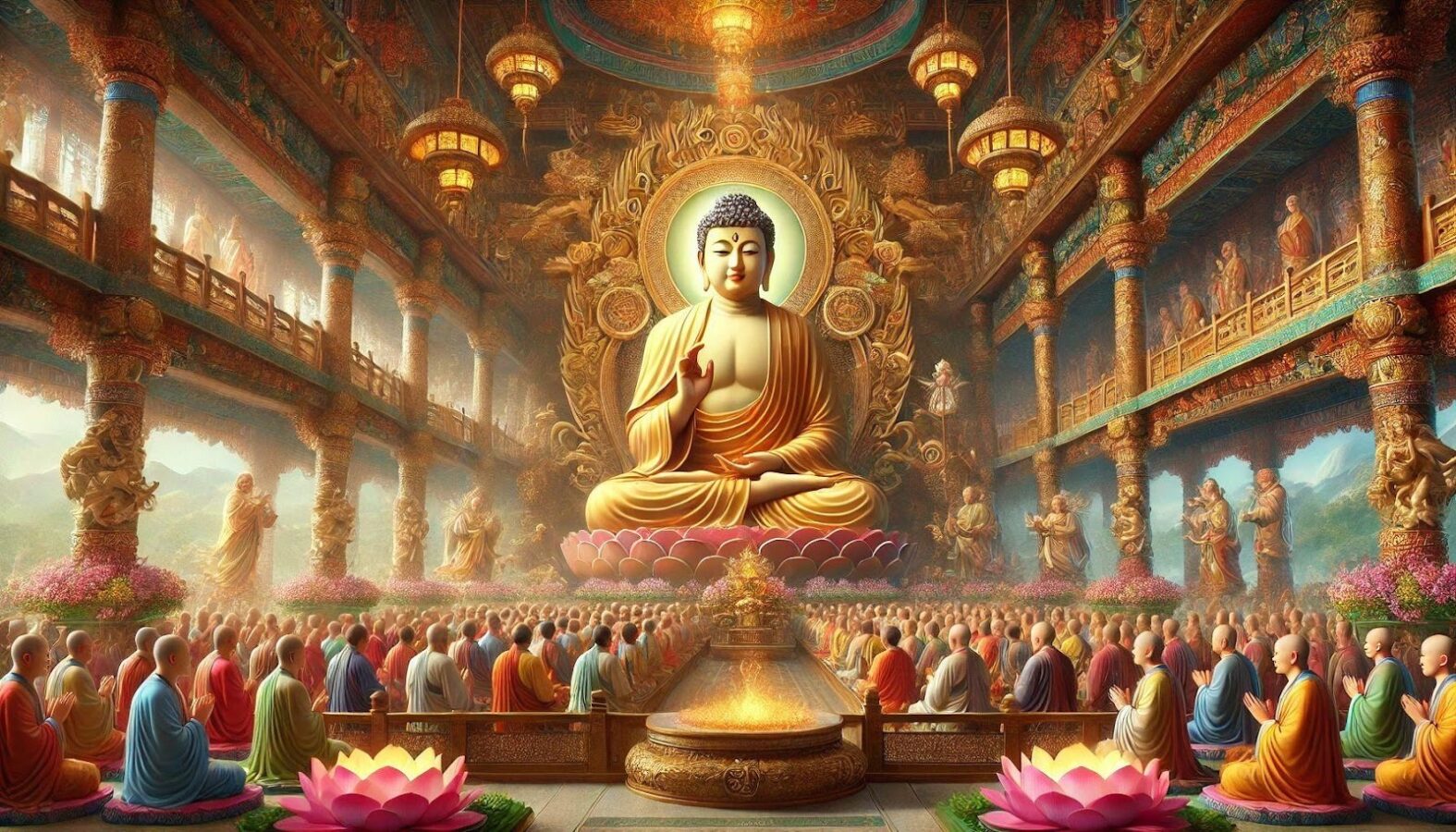
Date: 02/03/2024 02/04/2024
Location: Star Lake Meditation Center
Teacher: Lucy Zhou
Dharma talk
The oppression of death
Once, the Buddha was living in the capital of the Magadha kingdom, Kalandaka Bamboo Park, north of the city of Rajgir.
At that time, four Brahman practitioners, who had practiced the five supernatural powers, got together and discussed how to escape death. Finally, they came to a conclusion:
“When death comes, even the strongest and most powerful people cannot escape from it; each of us should hide with our supernatural powers so that death cannot find us.”
The first practitioner flew in the air and tried to hide from death in this way, but he died in the air.
The second practitioner dived into the deep sea and tried to hide from death in this way, but he died in the sea.
The third practitioner went into the mountainside, trying to escape death in this way, but he died in the mountain.
The fourth practitioner went into the rock of the earth and tried to escape death in this way, but he died in the rock.
When the Buddha knew this, he took this opportunity to teach the bhikkhus, saying:
“Bhikkhus! Those who want to escape death should think about four truths. What are the four truths?
Everything is impermanent; this is the first truth, so one should never forget the practice.
All actions are sufferings; this is the second truth; one should think about this truth.
All dharmas have no self; this is the third truth; one should contemplate it.
Total cessation is nirvana; this is the fourth truth; one should contemplate it.”
On another occasion, the Buddha came to Sāvatthī, the capital city of the Kosala kingdom, and stayed in Jeta’s Grove on the southern outskirts of the city.
On that day, King Pasenadi came to see the Buddha wearing dusty clothes as if he had been busy outside and had not returned to the palace to change his clothes. The Buddha greeted him and said:
“Great King, where have you been busy?”
“Tathagata, as a king of a kingdom and head of all the people, I’m free among all of them. I must strive to rule the kingdom and keep my throne. A king of a kingdom owns a large area of land and has the duties of a king. I have just come from today’s inspection.”
King Pasenadi answered in such a way. It seemed to imply that “being a king is very busy, unlike you monks who are so free”, so the Buddha responded to him by saying:
“Great King, now let me ask you, please answer as you think in your mind.
For example, a man whom you can trust came from the east and told the king:
‘I have just come from the east, and there I saw a hard and large stone mountain grinding toward this place. All beings, flowers, trees, and other things were crushed wherever they passed.’
Not only in the east but also in the south, west, and north, there are people you can trust to tell you that there was also a large mountain coming from their directions where they came from. Great king, just think about it. Human bodies are hard to attain, and no living being can survive such a terrible and dangerous disaster. What should you do?”
“Tathagata, it will be even harder to get a human body after such a catastrophe of death! There is no other good choice but to practice the Dharma, practice good deeds, accumulate merit, and concentrate on the Buddha Dharma.”
“Great King, why do you no longer say that you are the head of all the people, the free king of a nation, with a vast territory and people to govern?”
“Ah, Tathagata! I was just mouthing high-sounding words. Once there is a conflict with others over the words, treasures, or military matters, even if the king of a nation cannot be free. Because there are winners and losers in conflicts, and it is not certain who will win or lose. What’s more, when death comes to the king’s head, even if the king has a strong army, a powerful spell minister, and a large amount of gold and treasure, he cannot resist it! Therefore, I would say that when that dangerous and horrible disaster suddenly occurs, all beings are not spared. There is nothing that can be done except to practice righteousness, good deeds, accumulate merit, and devote oneself to what the Tathagata has taught.”
“That’s right, Great King! Old age, sickness and death often afflict and persecute all living beings, so what to do? The only way is to practice well and intensively in the right way.”
The Buddha once gave a parable to the bhikkhus to encourage people to strive for the study of the Dharma.
The Buddha said:
“For example, there was a time when our world was flooded with seawater, and there was a turtle on the sea with an immeasurable life span, floating aimlessly in the sea because of blindness and only lifting its head out of the water once in about a hundred years. At the same time, there was a piece of wood with a hole in the middle. It floated with the wind and the waves.
Can the blind tortoise fit into the hole in the piece of driftwood when it comes out of the water once every hundred years?”
“How difficult, Tathagata! How long it takes for a blind turtle to wander and driftwood to drift on the waves!” the venerable Ananda replied.
So, the Buddha encouraged the bhikkhus by saying:
“It is very difficult for a blind tortoise to meet driftwood, but in comparison, it is even more difficult for a foolish mortal drifting through life and death to be born as a human being and to have a temporary chance of attaining human life. Why? Because sentient beings lack the guidance of righteousness and righteousness, they lack righteousness and good deeds in their behavior. They are mostly weak, killing and killing, creating countless bad karma.
Therefore, bhikkhus! If you have not realized the Four Noble Truths, you should make every effort to practice to realize the Four Noble Truths.”

